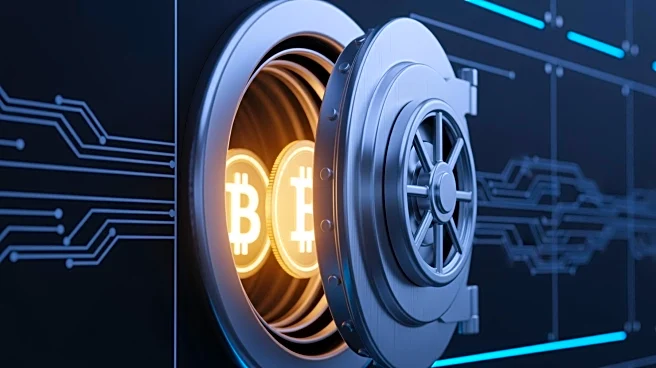What is the story about?
What's Happening?
North Korean leader Kim Jong Un, Russian President Vladimir Putin, and Chinese President Xi Jinping are attending a major military parade in Beijing, marking the 80th anniversary of the end of World War II. This event is significant as it brings together three leaders who are often seen as challengers to the United States. Kim Jong Un's visit to China is his first since 2019, and it follows his arrival in the Chinese border city of Dandong. Putin is already in China, having attended the Shanghai Cooperation Organization summit. The parade, held at Tiananmen Square, is touted by China as a demonstration of unity among nations. Security measures in Beijing have been heightened, with road closures and military personnel visible throughout the city.
Why It's Important?
The attendance of Kim Jong Un, Putin, and Xi Jinping at the parade underscores a potential shift in geopolitical alliances, particularly in opposition to U.S. influence. This gathering of leaders from North Korea, Russia, and China may signal a strengthening of ties among these nations, which could impact global diplomatic and military dynamics. The event also highlights China's role in fostering relationships with countries that have contentious relations with the United States. The parade serves as a platform for these leaders to showcase their unity and possibly coordinate strategies that challenge U.S. policies and actions on the international stage.
What's Next?
The parade could lead to further diplomatic engagements among the attending leaders, potentially resulting in new agreements or collaborations that counter U.S. interests. Observers will be watching for any announcements or meetings that may occur on the sidelines of the event, particularly between Putin and Kim Jong Un. The international community, especially the United States and its allies, may respond with increased diplomatic efforts to address the implications of this show of unity. Additionally, the heightened security in Beijing suggests that China is taking significant measures to ensure the event proceeds without incident, which may influence future international gatherings in the region.
Beyond the Headlines
The parade not only commemorates historical events but also serves as a cultural and political statement. The presence of art installations and national symbols around Beijing reflects China's emphasis on national pride and historical legacy. This event may also influence domestic perceptions within China, reinforcing the government's narrative of strength and unity against external pressures. The gathering of these leaders could have long-term implications for regional stability and the balance of power in Asia, potentially affecting trade, security, and diplomatic relations.















